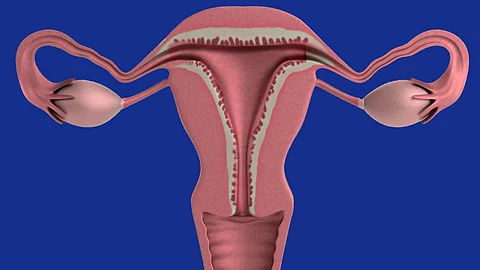

Polycystic ovary syndrome (PCOS) is a complex hormonal condition that causes a reproductive hormone imbalance, where the ovaries produce abnormal amounts of androgens (male hormones), particularly testosterone. It affects 1 in 10 women of childbearing age.
The word “polycystic” means “many cysts”. It is a syndrome as it has a set of symptoms that affect ovaries and ovulation. Its three characteristics are:
Development of multiple small fluid-filled sacs(cysts) in the ovaries.
Increased androgen levels.
Disturbances in the menstrual cycle - Missed periods or irregular periods.
Most common symptoms of PCOS
Disturbance in menstrual cycle: Irregular menstrual cycle or heavy bleeding.
Weight gain: Unexplainable weight gain and difficulty in losing weight.
Hirsutism: Excessive body hair on the face, chin, or parts of the body where men usually have hair due to excess androgens.
Acanthosis Nigricans: Darkening of the skin, especially in the areas of groin, along the neck creases, and under the breasts.
Male-pattern baldness: Hair thinning or hair loss on the scalp.
Infertility: Trouble conceiving pregnancy.
Headaches and fatigue: Hormonal changes can trigger headaches.
Acne: Oily skin and breakouts on areas of face, upper back, and chest.
Mood swings: Frequent mood swings due to hormonal imbalance.
How PCOS is diagnosed
Doctors usually diagnose PCOS in women who have at least two of these three symptoms:
Irregular or absent monthly periods.
Excessive hair growth on the face and body.
Presence of multiple cysts on the ovaries seen on ultrasonography.
Higher than normal levels of androgens and other hormones on blood tests.
The bottom line
If you suspect PCOS and have any of the aforementioned symptoms, consult a doctor to prevent PCOS complications.
